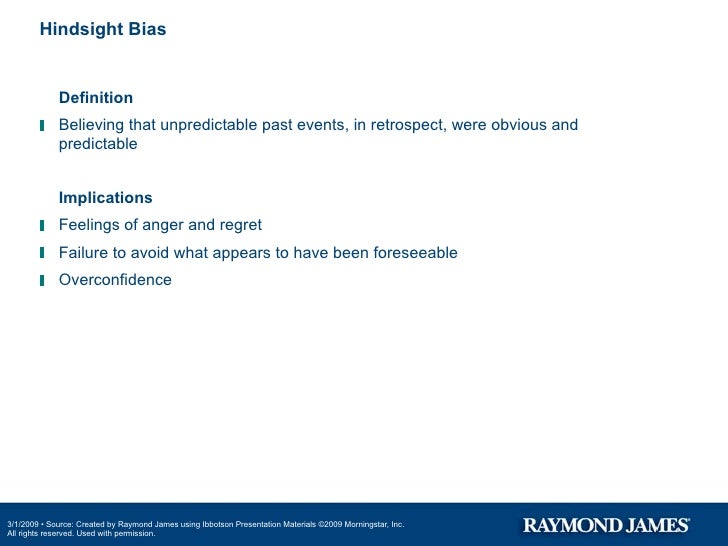

Overall, older adults were less likely to recollect their original judgment than young adults, and thus had to reconstruct it more frequently. Additionally, we quantified the magnitude of bias in the reconstructed judgment. We isolated the probabilities of recollection, recollection bias, and reconstruction bias with a Bayesian, three-level hierarchical implementation of the multinomial processing tree model of hindsight bias (Erdfelder & Buchner, 1998).

To synthesize the available findings, we conducted a meta-analysis of nine studies (N = 366 young, N = 368 older adults). Research on how cognitive aging affects the sources of hindsight bias has produced mixed results. This hindsight bias has two sources: an impairment in direct recall of the original (i.e., uninformed) judgment after presentation of the correct answer (recollection bias) and a reconstruction of the original judgment that is biased towards the correct answer (reconstruction bias). Yet, the mixture of underlying processes differed considerably between age groups, so that inhibitory control does not suffice as a sole explanation of age differences.Īfter people have learned a fact or the outcome of an event, they often overestimate their ability to have known the correct answer beforehand. Hindsight bias was larger in the strong than in the weak condition and followed a ∪-shaped lifespan pattern with young adults showing the least hindsight bias, in line with an inhibitory-control explanation. In order to experimentally test the impact of inhibitory control, the correct judgment was presented either in a weak or in a strong, difficult-to-ignore manner. They later received the correct judgments for some of the questions while trying to recall their own earlier judgments. Participants first gave numerical judgments to difficult almanac questions. We performed a typical hindsight-bias study including 9-year-olds, 12-year-olds, young adults, and older adults. We tested whether this explanation holds for three cognitive processes assumed to underlie hindsight bias: recollection bias, reconstruction bias, and the tendency to adopt newly acquired knowledge as old. Recent research suggests that age-related differences in hindsight bias may be based on age-related differences in inhibitory control.

Now the family sued the radiologist considering it as malpractice.Hindsight bias is the tendency to overestimate one’s prior knowledge of a fact or event after learning the actual fact. His life could have been saved if this was discovered in the first X-ray itself. Now the tumor is discovered, but the patient died even after receiving treatment since he was in the last stage of the disease. Then after a couple of years, the same patient was admitted to the hospital experiencing serious symptoms. One such example is that while examining an old man’s X-ray the radiologist failed to find a minute developing tumor. This is usually when there is partial information of the patient’s condition is present and the remaining is left to doctors to predict. Often this biased state in doctors can make them criminals for being the reason for the death of patients. Hindsight bias can be seen in the field of medicine too. Here jury had foreseen the environmental spill also in judgment. As a result, just knowing is a different outcome made the jury award a much greater compensation for injury than if they know that injury alone took place. Further they asked the railroad to pay damage to both the spill and the victims, although the environmental spill does not affect injury faced by victims. The jury came to know that the rivers nearby the accident spot were intoxicated after the toxic chemicals spread as a consequence of the railroad accidents. One example can be such as, juries were left with a case of railroad tracks accident investigation to award compensation based on the injury that occurred to victims. They often blame the verdict with words such as ‘You should have known this’. This sacrifices the ultimate goal of judges in the investigation of a case and then bringing a more appropriate judgment. Many times, judges, as well as jurors conclude even before they hear the actual happening of the event under justice. In the courtroom, Hindsight bias taints seen as very risky.


 0 kommentar(er)
0 kommentar(er)
